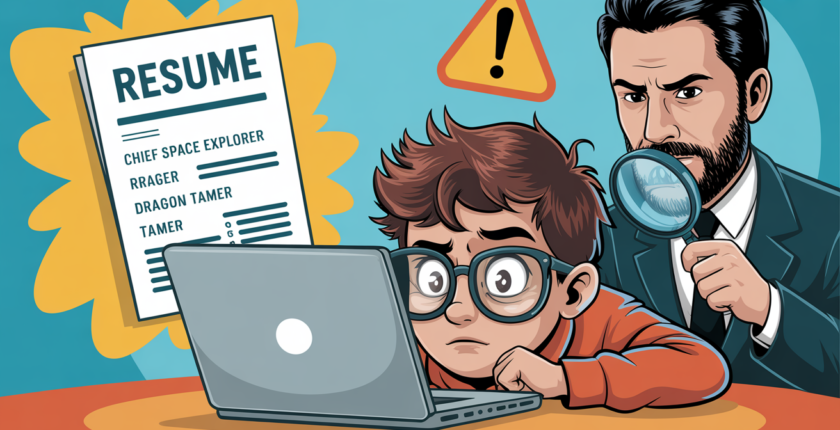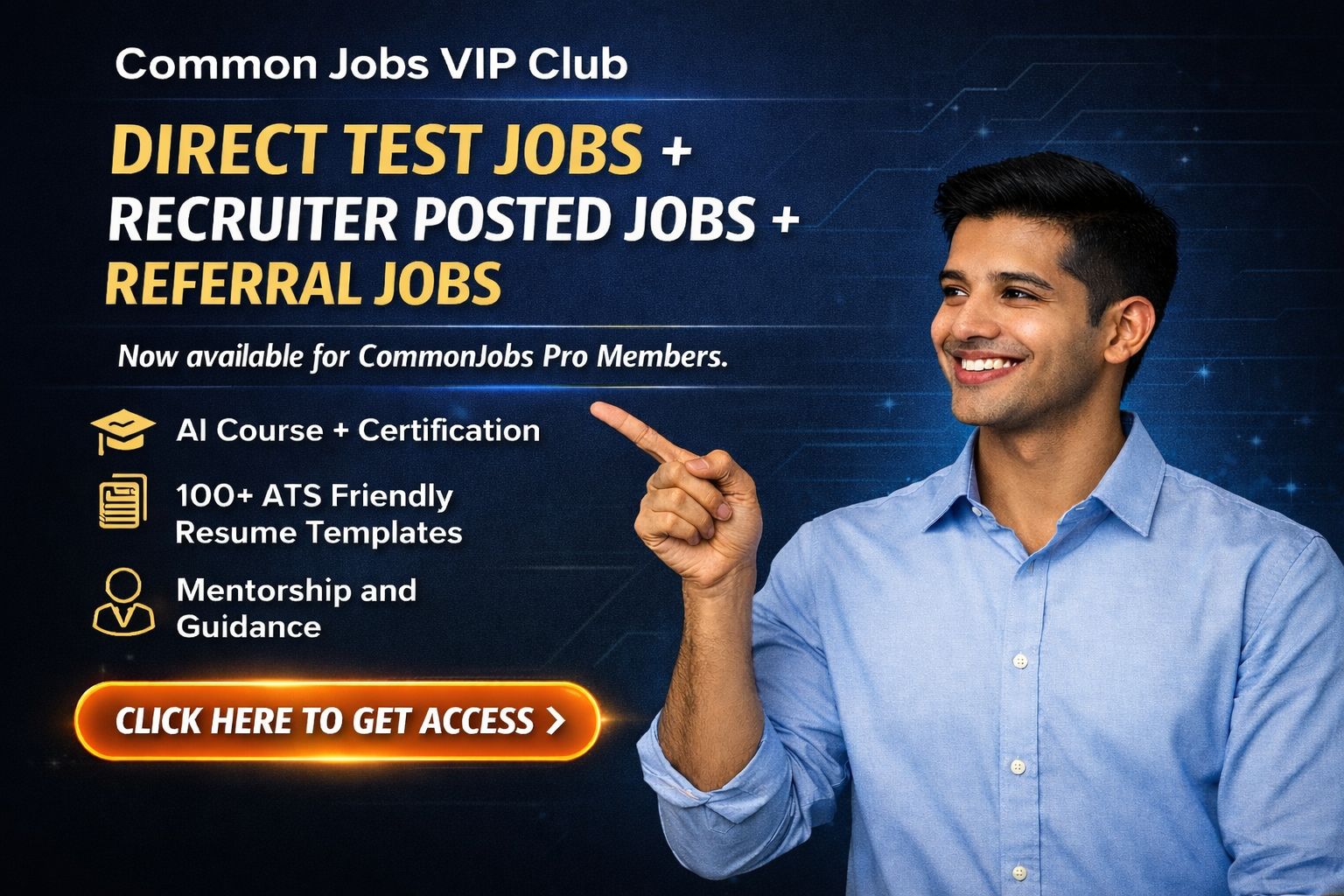AI Resume Writing: Why You Should Be Careful with AI-Generated Resumes”
AI Resume Writing: Freshmen and students are increasingly using AI technologies, such as ChatGPT, to help them compose cover letters, resumes, and customized applications in today’s competitive employment market. The allure is clear: professional polish, efficiency, and speed. AI, as opposed to manual editing, can make suggestions for enhancements, optimize language and keywords, and generally assist in presenting oneself in the best possible light. When you’re rushing to apply for a lot of jobs or aren’t sure how to present your limited experience, these elements seem to be extremely useful.
But experts are now cautioning that there are significant risks associated with relying solely on AI for resumes. AI “hallucination,” in which the AI fabricates accomplishments, exaggerates duties, or generates information that don’t match the candidate’s actual profile, is one of the main problems. If discovered during an interview, even a minor error might harm a fresher’s credibility and lower their chances of getting hired. Recruiters frequently view well-written resumes that are generic, repetitious, or exaggerated, and many acknowledge that these stand out—in a bad manner.
This article looks at the opinions of industry recruiters and career coaches regarding the problems with AI-generated resumes, the pitfalls to avoid, and the alternatives for students, job seekers, and freshmen. You may utilize AI as a helper rather than a crutch by being aware of these problems, which will keep your apps accurate, genuine, and useful.
AI Visions: Inflated Results and Misleading Statements
The tendency of AI tools to manufacture things is one of the most grave cautions issued by specialists. This isn’t always obviously fake; when the AI is asked to “improve” or “tailor” your resume, it might occasionally be hyperbole or hallucinogenic additions. In more detail than you actually possess, it may claim that you oversaw a project, performed a function, or possessed a skill. Because recruiters can—and do—ask about specific jobs or experiences, this is especially dangerous for new hires. You will be exposed if you are unable to provide an explanation or evidence.
Always check and validate any resume text that AI recommends to prevent this. AI can be used to improve grammar, structure, or language, but not to create original material. Make sure the AI output matches your real experiences by keeping a thorough record of your actual academic projects, internships, volunteer work, skills, certifications, etc. If you say, for instance, that you “managed a team,” be sure to specify who, what, and when you did it—even if it was only a little college project. Veracity fosters trust, whereas untrue statements might permanently harm employment prospects.
Novorésumé 16 ATS Friendly resume Templates to to Land Your Dream Job
2. Keyword Stuffing & Generic Templates
generic Templates & Keyword Stuffing “Keyword stuffing,” or loading resumes with abilities and keywords solely because they are frequently used in job descriptions, is another problem mentioned. Recruiters are irritated when resumes appear the same and may exclude numerous applications before human review. Although AI systems are capable of producing numerous resumes rapidly, many applicants wind up using same or strikingly similar templates, wording, or structure, which prevents them from being unique.
Instead, freshmen should strive to strike a balance between personalization and keywords. Employ job advertisements to find key terms and abilities, but only include them when appropriate. Add a few sentences explaining your reasons for liking the business, project, or position in each application. If at all feasible, use distinct project names, particular results, or measurements. Even with limited experience, one well-described project or learning achievement can make your resume stand out above a sea of generic ones.
3. Overreliance & Lack of Human Oversight
Because they think AI can do everything flawlessly, experts caution that many job seekers utilize it to create complete resumes or cover letters from scratch. Despite their power, AI tools have flaws. They frequently misunderstand directions, leave out crucial context, or even create language that sounds excellent but isn’t sincere or toned appropriately. Errors like misaligned dates, incompatible talents, or inappropriate text can appear when human review isn’t done.
The approach should be to manually draft, then let AI revise, especially for new students or freshmen. Write your roles, accomplishments, and projects in your own words first, then use AI to improve flow, eliminate filler words, and polish language. Ask teachers, mentors, or peers to review as well. Subtle mistakes or discrepancies that AI overlooks can be detected by a second or third set of eyes. By doing all of that, you can be confident that your resume will remain accurate and genuine.
4. Authenticity & Personal Branding as Differentiators
As AI becomes more widely used, being authentic becomes a crucial differentiator. Generally speaking, recruiters can detect when a CV sounds formulaic or overly polished since they no longer relate to the applicant. Stronger impressions are typically made by freshmen who share personal tales, make particular contributions, and share distinctive learning experiences.
Include minor, significant information to create authenticity, such as the technology you learned for a project or any obstacles you experienced. strict deadlines, self-education), comments, or outcomes you obtained. Describe your own role, even if you were a member of a team. Additionally, your style can be reflected in the way you create your resume, the tone of your cover letter, and the templates and tools you choose. If you want to exhibit creativity or motivation, don’t just choose something that appears “very corporate.” Strong, general language rarely has the same resonance as real stories.
5. Why Human Connection Still Matters
Human components like recommendations, customized messages, cover letters, and in-person/virtual networking are becoming more valuable again, according to career advisers cited in the ET piece. Drafting may be aided by AI, but human judgment is still frequently required. When someone delivers a customized cover letter or goes over and beyond with personalization beyond simple keyword alignment, employers take notice.
It might be beneficial for new hires to spend time networking with instructors, graduates, or employees of the companies they wish to work for. Small actions like personalizing communications, bringing up a particular aspect of the business, or expressing your enthusiasm for the position can make a big impression. While AI can help you improve your communication, human interaction fosters trust more than automation ever can.
Must-Know AI Tools Freshers, Students, and Job Seekers in 2025
Conclusion
AI tools like ChatGPT are powerful assistants—and they can help freshers and students create more polished, well-written resumes more quickly. But as the Economic Times article warns, there are real dangers in overusing them without oversight: fabricated claims, generic templates, keyword stuffing, and losing authenticity.



